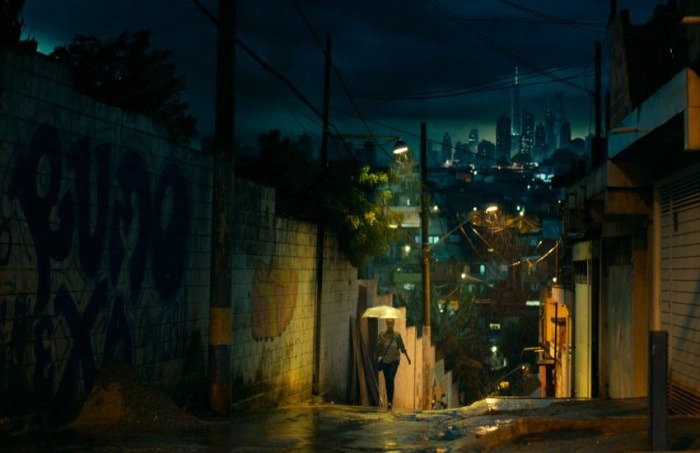
On Monsters, and Loving Them
AS BOAS Maneiras (English: Good Manners) is a Brazilian film directed by Juliana Rojas and Marco Dutra that was recently screened at the 58th Cartagena International Film Festival. In one section of the film, an animated sequence flashes onscreen as Ana (Marjorie Estiano, in a brilliantly expressive performance) reflects on the night she got pregnant.
We see her making love to a handsome priest in a car parked on a lonely hill. There is a full moon in the sky. Ana falls asleep and when she wakes up, the priest is gone. She sees a pair of gleaming eyes staring at her from the darkness. There is a growl and the monster, a giant wolf, leaps forward to attack. Ana pulls out her gun and fires a shot. There is a howl and a splash of blood and the wolf disappears. Soon, Ana becomes pregnant. Soon after that, Ana hires Clara (Isabel Zuaa, restrained and solid) to work as her housekeeper.
Strange occurrences that happen on full moon nights and the way these events pull both women into a bloody, heady storm of monsters, secrets, and relationships are the elements that make As Boas Maneiras a welcome addition to the genre of films that explore the more delicate and emotional bonds that exist between humans and monsters, real or imaginary.
The film is a strange hybrid of the absurd and the horrific, resulting in a kind of black comedy that is both pitch-black and filled with a variety of themes that are ripe for analysis. As Boas Maneiras is that kind of film that makes you unsure about whether you should be laughing or cringing in terror at any of its many standout scenes.
This kind of absurd style in which the film has been made is not accidental – as fantasy is something that lends itself well to the absurd, despite being more often paired alongside the horror genre. The directors of As Boas Maneiras seamlessly blend genres in such a way that their joint alchemy manages to create something that is all at once uniquely theirs, something that is uniquely Brazilian, and something that is uniquely South American.
Sure, there are many films that have explored the complex relationships between humans and monsters – Beauty and the Beast, The Shape of Water, etc. What makes As Boas Maneiras on par with some of those amazing films is the manner in which the human/monster relationship is explored in an unflinching, yet empathetic way. There is a scene where Clara is forced to nurse Ana’s newborn child.
The housekeeper places her breast into the baby’s fanged mouth and, even as the child bites and bloodies Clara’s body, there is still a harsh beauty that is represented in the way the woman allows this to happen. Driven by a love for both Ana and her child, she sets her mind to keep the baby alive, replacing the pain on her face with an expression of sorrowful determination which keeps her going until the very last moments of the film when her devotion to Ana and the child are tested to the fullest.
The monster element of the film, according to co-director, Marco Dutra, came from the rich fabric that is Brazilian folklore. He noted in an interview that werewolves are a popular element of the country’s folklore, despite being generally more of an international figure. The Brazilian werewolf, according to him, stemmed from mostly European beliefs that mixed with native superstitions to create the beast that Brazilians regard as a werewolf. Dutra connects folklore with having an understanding of the past and the relationship between the rural and urban – ideas that are also reflected in the film.
The directors also build some interesting parallels – layering the human/monster relationship with elements that subtly speak to other relationships within our society. Dualities abound in the film (Ana’s upper-class apartment is rendered in pastels, while Ana’s neighbourhood is presented in dark, gloomy tones) and two other specific dualities, the same-sex relationship between Ana and Clara, and the fact that theirs is a strong relationship that might comment on the white/black tensions that are present in Brazil where the film is set, are particularly significant when placed next to the dominant human/monster theme that is shot through the movie.
We see this in the climax of the film when the angry mob hounds down the wolf-like monster that prowls their city. It is a moment that speaks of persecution. It is persecution that ignores the fact that the monster is loved deeply; that the monster has a family; and that the monster just wants to be understood.
It is blind persecution, which has continued to play out all over the world, especially in the dialogue (verbal or non-verbal) that exists between different sexualities and different races. With this in mind, As Boas Maneiras forces us to contemplate the question: Is the wolf, who cannot control his instincts, really the monster in the story or is it the blind mob who knowingly and deliberately set out to attack and kill?
**This article also was published in Guayana Chronicle.
